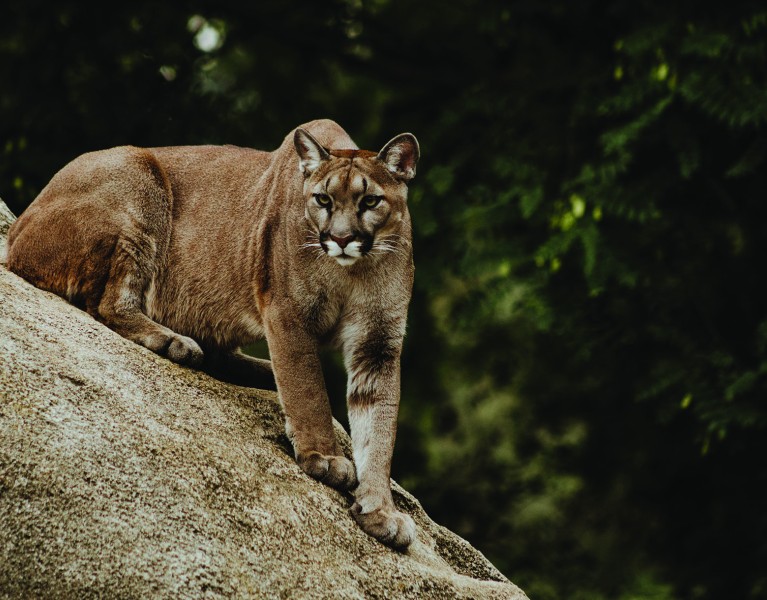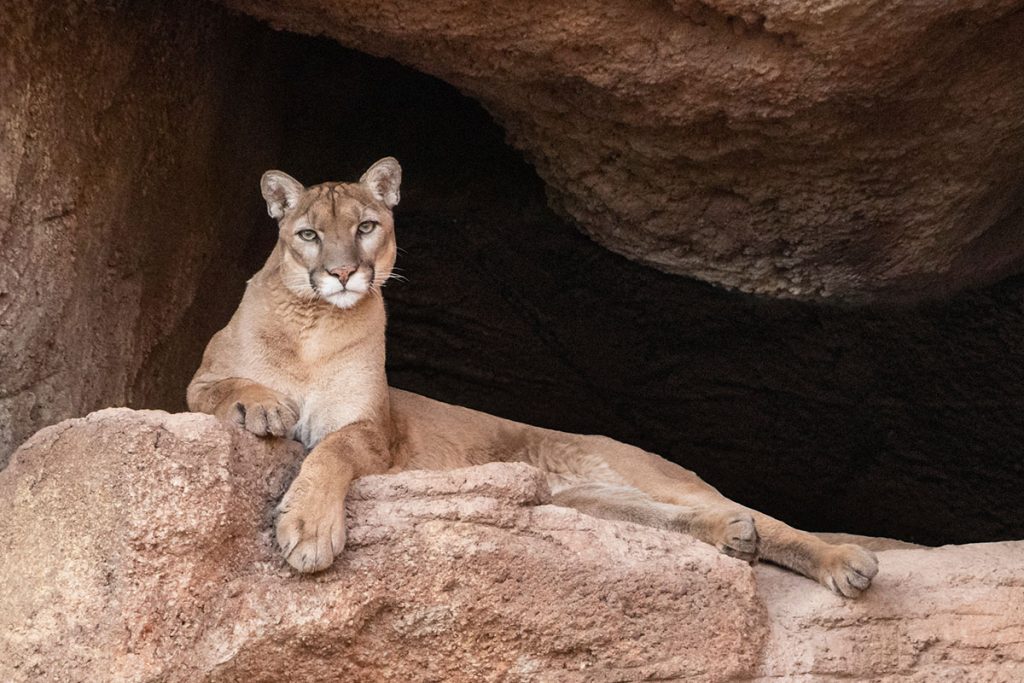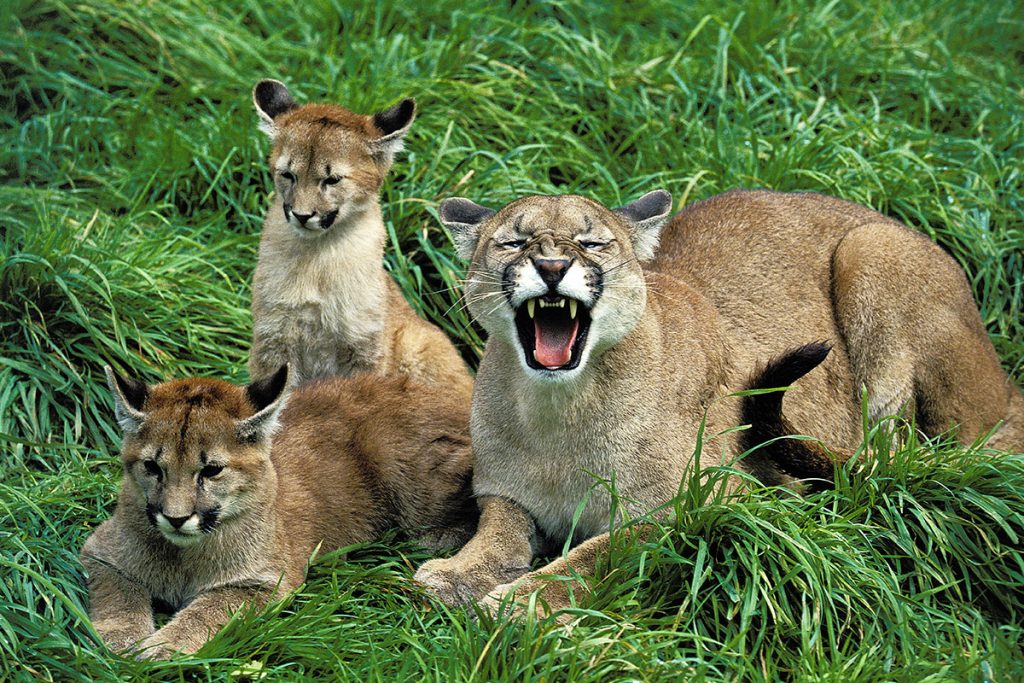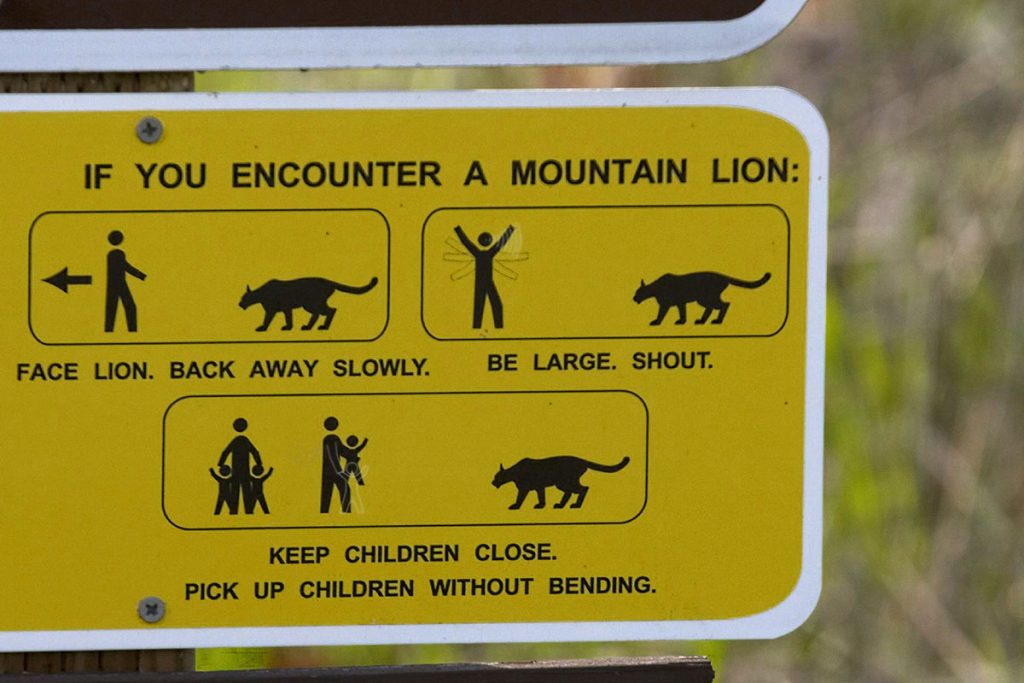
Are Mountain Lions Dangerous?
Table of Contents [Show]
Mountain lions, also known as cougars, are the largest wild cats in the United States. They’re dynamic, agile, powerful hunters that reside in a variety of habitats. Mountain lions are commonly found in areas uninhabited by humans, as they tend to prefer their own space in nature. It’s rare to spot one, and it’s even rarer to be attacked by one, but that doesn’t mean it’s impossible. If mountain lions are provoked, it’s likely they will attack. If you live, camp, or hike in an area known to be inhabited by mountain lions, it’s a good idea to know what to do if you encounter one of these large cats.
What Causes Mountain Lions to Attack?
Mountain lion attacks are incredibly rare. In fact, over the past 100 years, less than 20 people have been killed as a result of a cougar encounter. Sightings, however, have risen exponentially, increasing the chances an attack occurs. Mountain lions are protective animals and feel threatened if they spot humans in their territory. Reasons that a cougar may be encountered and attack include:
- Loss of habitat due to humans moving from cities and encroaching on wilderness.
- Lack of food in their territory.
- Increased hunting of adult cats, leaving inexperienced juvenile cats to seek the wrong prey.
- Increase in camping and hiking in mountain lion territory.
- Running, or adversely, standing still during an encounter.

Where Do Mountain Lions Live?
Mountain lions can be found in a wide range of habitats from mountains to deserts to grasslands to areas with caves and large rock formations. Cougars are the most widespread mammals in the United States with an estimated population of 20,000 to 30,000. The majority of cougars are found in the Midwest and Western regions of the U.S. Many sightings have been recorded in Colorado, California, Arizona, Montana, New Mexico, Nevada, Oregon, Wyoming, and Utah.
Mountain Lion Safety Tips
If you live, work or play in or near mountain lion territory, you need to keep these safety tips in mind:
Ways to Avoid an Attack
- Travel in a group. One of the best ways to avoid an attack from a mountain lion is to travel in groups. They see easy prey when people are traveling alone, but are less likely to approach if you are hiking with multiple people. Even walking with one other person is much safer than going alone. If you do travel alone, consider carrying a large knife or bear spray.
- Keep your distance. If you see a mountain lion, but it doesn’t see you, slowly walk away from that area. Don’t go anywhere near it even if you are incredibly fascinated.
- Stay on a designated trail. Don’t go off the path, especially if you’re alone.
- Be prepared. Ask if there are any local sightings of mountain lions before you head out.
- Stay alert. Observe any signs of mountain lions such as scratches on trees, paw prints, or animal droppings.
- Wear bright colors. Wearing brighter colors may deter attacks over muted, dull colors.
- Make noise. Carry a whistle, bells or even a small air horn to scare wild animals away.
- Stay together. Keep children close to your side and dogs on a leash.
- Only hike in the daytime. Avoid wandering around known mountain lion territory in the dark.
- Don’t feed wildlife. If you leave food out for other wildlife, it may attract mountain lions to the food or to their prey you are feeding.

What to Do if You Encounter a Mountain Lion
Coming face-to-face with a mountain lion is no joke, something you want to avoid at all costs. In the unlikely event that it does happen, keep these tips in mind:
- Stand tall. If you encounter a cougar, make yourself appear larger and more aggressive. Without turning away, raise your arms and wave them slowly. Speak slowly, firmly, and loudly to disrupt and discourage predatory behavior.
- Never run past or from a mountain lion. Running may trigger a cougar's instinct to chase. Make eye contact and stand your ground. If possible, pick up small children without turning away or bending over.
- Never bend over or crouch down. Bending or crouching may resemble four-legged prey animals. It also makes the neck and back of the head vulnerable.
- Don’t freeze. Immobility and silence may be interpreted by the cougar as a sign that you are vulnerable prey.
- Fight back. If attacked, fight back with whatever you have on hand. Without ever turning your back on the cougar, use rocks, your backpack, tree branches, or even bare hands to fight off the attack.

Mountain Lion Facts
- Males grow to around two feet in height and up to 6.5 feet in length.
- Males can weigh over 200 pounds.
- A cougar's diet consists of small animals, such as squirrels, beavers, raccoons, and rabbits and occasionally cattle, deer, elk, or moose.
- Mountain lions can live for 20 years in the wild.
- Cougars can leap 40 feet horizontally and 20 feet vertically.
- Mountain lions have a tan-colored coat with a long, full tail measuring two-thirds the length of their body.
- Females have two to three kittens at a time.
- Females raise their young alone and teach them to hunt
When you plan your next camping trip or hiking adventure, be aware of the potential for cougar sightings. If you're in an area where known encounters have occurred, have a plan ready. Be prepared with a knife, bear spray, whistle, or something that will deter an attack. The best plan is to stay in a group as mountain lions typically target lone prey.
Keep in mind that most mountain lions want to avoid humans just as much as you want to avoid them. Give them space, respect their habitat, and don’t provoke. Stop an attack before it happens by being aware of your surroundings, staying on designated trails, and spotting signs of cougars in your area.
Featured image by: Priscilla Du Preez.


